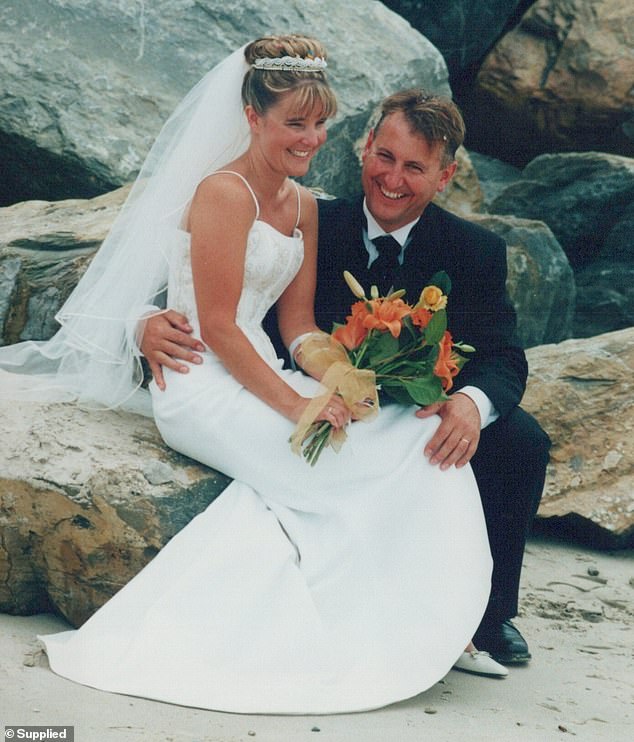All Michelle McCranor wanted to do was hold the body of her little daughter Celeste in her arms.
Instead, doctors and nurses whisked her dead baby away, never to be seen again: he was taken straight from the hospital to the grave.
Michelle and her husband Tim still bear the mental scars of the ordeal that occurred 23 years ago, and are desperate to prevent others from suffering the same way they did.
The Adelaide couple had always dreamed of having a child and were delighted to get pregnant a month after their wedding.
Ms McCranor said Celeste’s pregnancy was “perfectly normal” and complications only arose in the last 10 weeks.
“I had a blood clotting problem that was detected. It only seems to show up when I’m pregnant,” McCranor said.
‘The clotting was causing a blood flow problem and the baby was not getting enough nutrients.
“But there was never any alarm. We were in complete joy about the pregnancy, no one mentioned that our baby would not survive.”
The couple (pictured on their wedding day) were shocked to learn that an average of six Australian babies are stillborn every day and that between 20 and 30 per cent of those deaths are considered preventable.
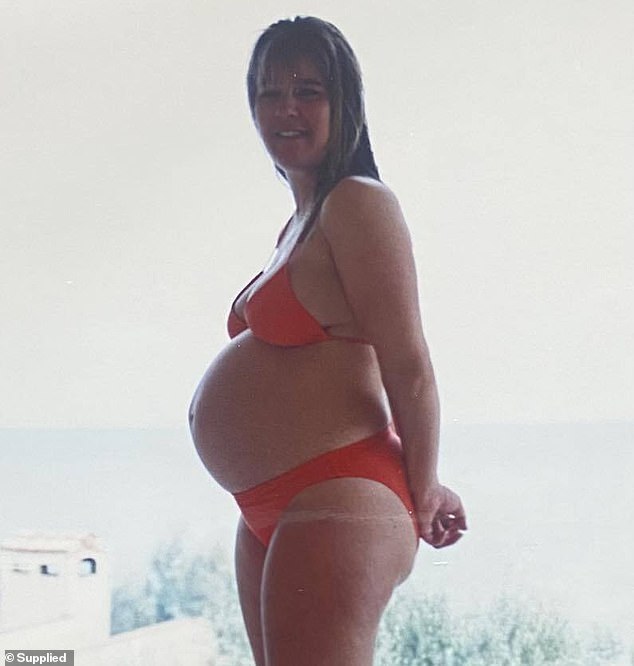
Ms McCranor (pictured during her pregnancy) recalled having to leave her daughter “behind” in hospital without having a chance to hold her.
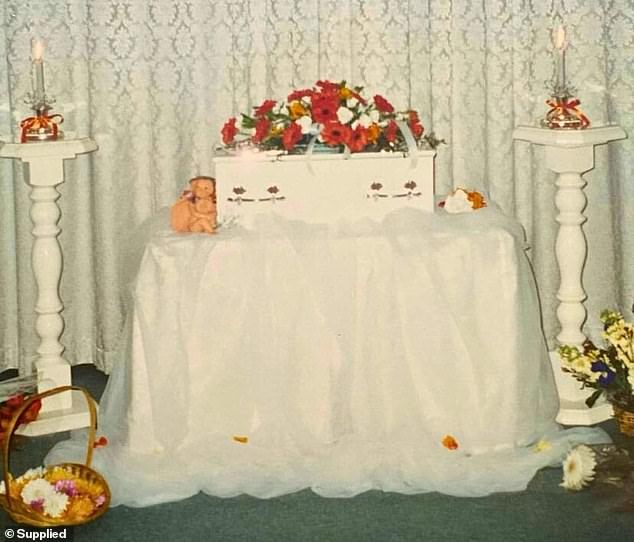
The McCranors recalled feeling like they had “never been pregnant” when people stopped asking about Celeste because of their own discomfort (pictured: Celeste’s funeral)
Ms McCranor subsequently suffered preeclampsia, a high blood pressure disorder that affects pregnant women, and was put on bed rest in hospital.
During her stay, doctors noticed that Celeste’s heart rate had slowed and decided to induce her labor at 32 weeks.
The couple spoke to a counselor about the potential problems a premature baby could have, but say there was no preparation for what would happen if Celeste died.
“It’s hard to explain, it was like I had no fear. I thought, ‘Well, I’m in the hospital now. If there’s a problem, they’ll fix it,'” McCranor said.
‘We were in a little bubble of excitement because we were going to have a baby.’
McCranor added: “No one mentioned the word stillbirth. At the time we didn’t even know what it meant.”
The day of Celeste’s birth was a complete blur for Mrs. McCranor.
She had been placed on a self-administered morphine drip, meaning she was feeling groggy from both the overwhelming emotions of childbirth and the effects of the opioid.
However, she clearly remembers the eerily quiet moment when Celeste was placed in a crib next to her bed.
“It seemed like everything was going in slow motion, but it actually happened very quickly,” McCranor said.
‘We had an older midwife and I remember her putting Celeste in her bed.
“I thought, ‘What do we do now? Are we allowed to touch her?'”
“No one gave me my baby. I could never hold her in my arms, never.”
When they began to realize that their daughter had died, the couple went into shock.
“We were just staring at her in bed, not knowing what we were supposed to do,” McCranor said.
‘Nobody guided us, nobody told us if it was okay to pick it up, like they do these days.
‘Now they have a whole healing process, some people even take their babies home for a few days.
“Sometimes I almost feel angry that we missed that.”
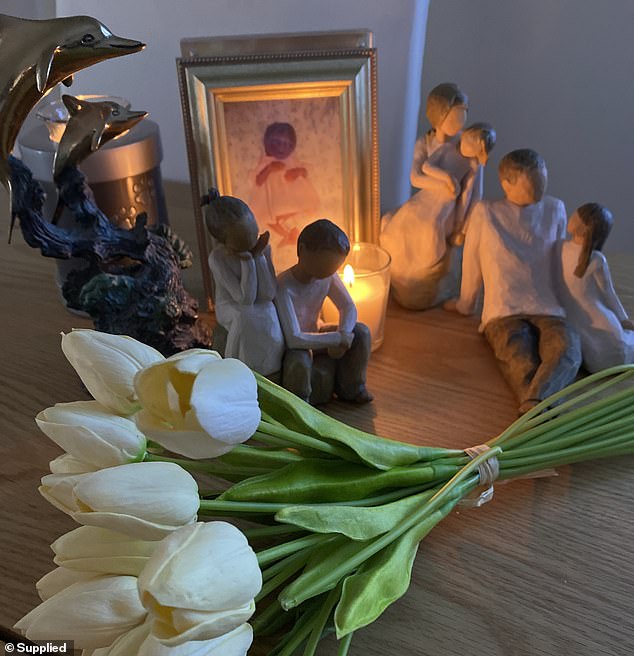
The heartbroken parents recall feeling lost after their daughter was born and, with no one to guide them, they were never able to hold her (pictured is the family memorial to Celeste)
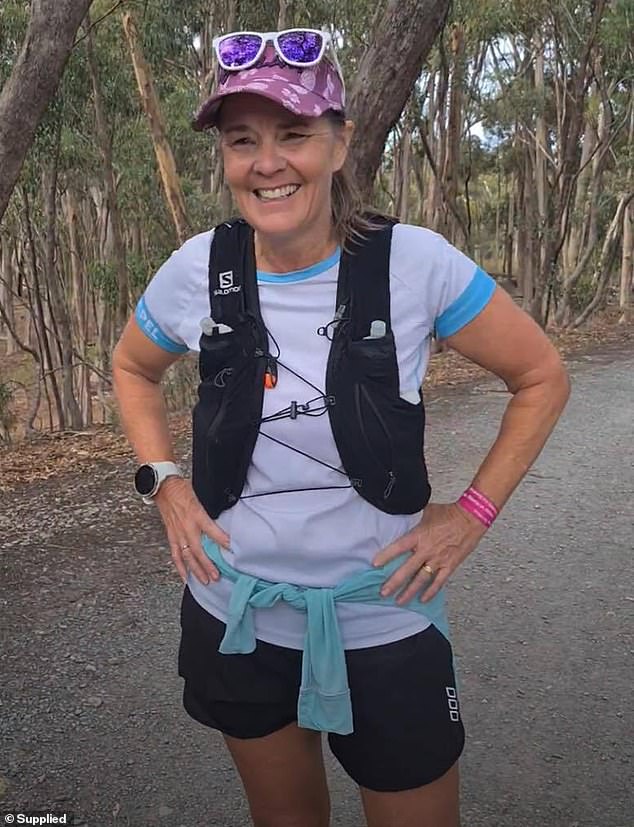
Ms McCranor (pictured) took up running after the birth of her son in late 2002 as a way of coping with her feelings of grief and guilt.
The moment that brought the parents out of their shock was when they were discharged from the hospital just one day after Celeste was born.
“I remember leaving the hospital and being scared to leave,” McCranor recalled.
“I was leaving my baby behind.”
Mr McCranor said: ‘The expectation is that, like most people, you will come out happy with a new baby.
“Instead, we went out, had to organize a funeral and tell everyone what happened, which is quite confronting.”
Ms McCranor was left feeling that the only proof she had that she had ever been pregnant was the stack of hospital leaflets she had received about coping with grief.
“It was almost like we walked out the hospital door and everyone forgot we were ever pregnant,” McCranor said.
‘Tim and I are the kind of people who think we should just cheer up and get on with our lives, but it hurt not being able to talk to people about our baby.
‘Back then, people felt uncomfortable if you mentioned it. It was almost like they thought the baby would just evaporate.
“When you’re pregnant, everyone asks you how you are and stuff like that. Then you go back to your daily life and no one wants to ask you any more.”
No matter how hard they tried to overcome their grief, the couple was constantly confronted with the loss of their daughter through the careless words of those around them.
At their co-working space they were asked about their maternity leave and the following year, when they welcomed their son Luke, other parents asked them why they had chosen to have only one child.
Following Celeste’s birth in 2001, Ms McCranor fell into a deep depression due to the grief of losing her daughter and the misplaced guilt she felt for having “failed” her.
“Our son was born and I was distracted for a while, but I still wasn’t in a good place,” she said.
‘I had what I called “the blues,” but it was obviously depression.
‘I kept mulling it over, but one day I was at my chiropractor’s and saw a business card for a personal trainer.
“I had never been into the gym or anything like that, but something clicked and I thought, ‘This is what I need.’”
Mr McCranor visited on behalf of his wife and booked his first session.
“The coach was a really lovely young lady and made me feel very comfortable,” McCranor said.
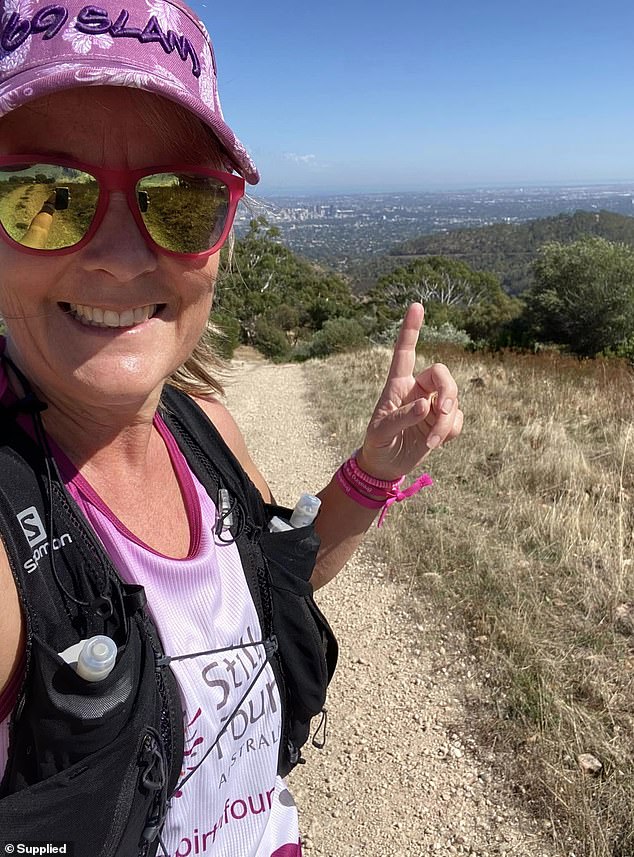
The McCranors hope Michelle’s (pictured) run will raise $1 million to help spread awareness programs that could save a baby’s life every day.
“She soon learned about our story and really wanted to help. She understood that I was there for my mental health as much as my physical health.
‘She was the one who finally got me into running. She signed us up for these off-road events and I discovered trail running.
“It started to make my head feel better. It became my medicine.”
As Mrs. and Mr. McCranor began to gradually heal over the years, they became more open about their daughter’s passing.
Growing up, Luke always knew he had a sister and included her in family drawings as a child.
The family celebrates Celeste’s birthday every year and keeps a photo of her displayed in their home.
Along with that process came a desire to learn more about stillbirth, and the couple was shocked by what they found.
“We are currently averaging six stillborn babies every day in Australia,” McCranor said.
“The emotional and economic impact is enormous, not to mention the impact on the health system.”
Ms McCranor, 53, plans to run from Seacliff in Adelaide to Port Melbourne in a span of just 20 days, finishing on November 20.
She waits Raise $1 million for the Stillbirth Foundation Australiawhich is working to distribute a program called Safer Baby Bundle.
The package is an awareness program on the five key things that expectant parents and doctors need to monitor to stay on top of their baby’s health and know when to intervene.
Implementation of the Safer Babies Package has the opportunity to save at least one of the six babies who die from stillbirth every day in Australia.
Ms McCranor felt that every baby, like Celeste, whose deaths had been kept “hidden” because of their inconvenient nature, was calling her to action.
“I was upset that the issue of stillbirths was still being overlooked. I felt that we were not giving a voice to all those babies who, unfortunately, did not make it out alive,” she said.
‘Between 20 and 30 per cent of these babies could be saved through a simple awareness programme, such as the Safer Babies Package.
“These programs cost nothing, they would only cost the government, and their effectiveness has been demonstrated in the United Kingdom.”
Mr and Mrs McCranor have invested themselves and their money in creating Keep runningan organization dedicated to raising awareness about stillbirth.
They are also working to produce a documentary featuring interviews with grieving parents in an attempt to pressure the government into funding awareness campaigns.
“I’ve found my voice and I feel like we’re in a position to make it heard for all the other parents who don’t have one right now,” McCranor said.

Michelle and Tim McCranor (pictured with son Luke) had a stillborn daughter, Celeste, in 2001.
“I would love to see an awareness campaign on television, like the stop smoking, Slip Slop Slap and road safety campaigns.
“We don’t want to scare prospective parents, we’re just trying to give them the best chance of having a healthy baby.”
McCranor, 62, added: “Today we can start saving lives. That’s how important this is.”
Ms McCranor currently spends 11 hours running and completes at least three strength sessions each week in preparation for her upcoming fundraising race.
The couple are accepting donations on the Stillrunning website with the aim of raising $1 million by November 20 for Stillbirth Foundation Australia.

